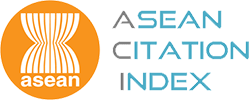ESTABLISHING THE LINK BETWEEN LAW, CULTURE AND INFRASTRUCTURE FOR PANDEMIC WASTE MANAGEMENT
DOI:
https://doi.org/10.32890/uumjls2025.16.2.6Abstract
Managing infectious and medical waste remains a significant challenge, particularly during pandemics like COVID-19. Poor waste management has led to environmental pollution and public health risks. Numerous publications and research studies have documented an increase in the volume of infectious and medical waste during the COVID-19 pandemic. However, ineffective waste management systems in developing countries have exacerbated the issue. Existing waste management laws in many nations often fail to account for pandemic scenarios adequately. Although the COVID-19 pandemic has ended, it is crucial to acknowledge the shortcomings in infectious waste handling during this period. To prevent similar problems in the future, governments ought to be better prepared. Many countries, including Indonesia, responded promptly by drafting quasi-legislation, such as technical recommendations or government circulars, to address the challenges of managing COVID-19 waste. This article reviews the relevant laws and policies in Indonesia and other countries through a legal doctrinal study. It concludes that effective infectious waste management requires more than just legislation. Adequate waste management facilities, funding, and a supportive legal culture – characterised by consistent compliance and understanding of the law by both the government and community – are essential. When governments can provide and oversee the necessary infrastructure, resources, and workforce, achieving this objective becomes easier.
Additional Files
Published
Issue
Section
License
Copyright (c) 2025 UUM Journal of Legal Studies

This work is licensed under a Creative Commons Attribution 4.0 International License.










